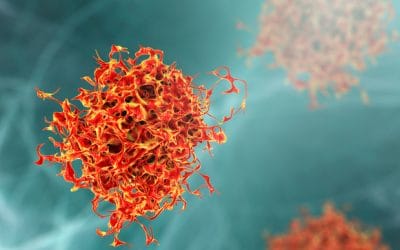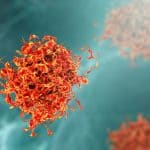Researchers from King’s College London (KCL) have developed an artificial intelligence (AI)-based model that can predict adult brain cancer patients’ rates of survival after receiving radiotherapy treatment.
Published in Neuro-Oncology, researchers applied deep learning to predict whether glioblastoma patients would survive eight months.
Responsible for around 3,200 cases every year in the UK, glioblastoma is a very aggressive and difficult-to-treat cancer, with just one in four patients surviving over one year after diagnosis.
Currently, patients are regularly and routinely tested to see whether chemotherapy is effective or not. However, some patients can suffer from harmful side effects as a result of chemotherapy.
Instead, by giving patients an instantaneous and accurate prediction from a single routine MRI scan, the AI will allow doctors to identify patients who would not benefit from chemotherapy and try a different course of treatment or begin an experimental treatment in a clinical trial.
After training the AI on a dataset of over 10,000 scans from a variety of patients with brain cancer, it “showed improved performances when first trained to detect abnormalities,” explained Alysha Chelliah, PhD researcher, KCL.
Dr Thomas Booth, reader in neuroimaging, school of biomedical engineering and imaging sciences, KCL, added: “The AI was able to give us an immediate and accurate prediction, which means clinicians can empower patients to make choices about their treatment.”
Involving a collaboration of 11 neuro-oncology centres across the UK, the use of AI to predict short-term and long-term survivors within eight months of radiotherapy would allow clinicians to be better informed for treatment planning and refer patients to potentially life-saving treatments quicker.
Dr Michele Afif, chief executive officer, The Brain Tumour Charity, said that the study findings “to evaluate and predict response to radiotherapy at a much earlier point… is a hugely important step in tackling this notoriously difficult-to-treat disease”.
Researchers hope to see the cancer research community using this tool “to see improved outcomes for patients who won’t benefit from the usual course of chemotherapy,” added Booth.










